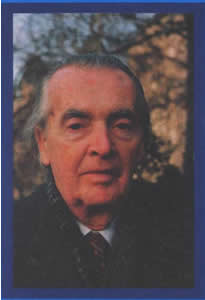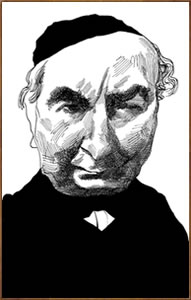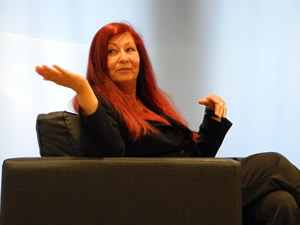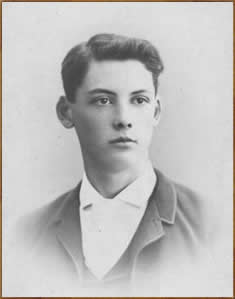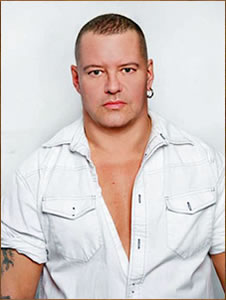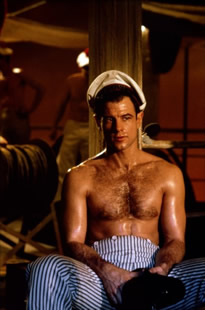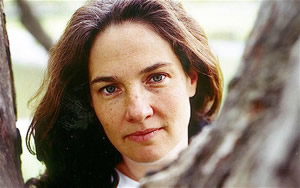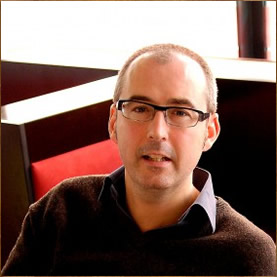De Duitse schrijver Heinrich Böll werd geboren op 21 december 1917 in Keulen. Zie ook alle tags voor Heinrich Böll op dit blog.
Uit: Der zufriedene Fischer (Kort verhaal)
“In einem Hafen an einr westlichen Küste Europas, liegt ein ärmlich gekleideter Mann in seinem Fischerboot und döst. Ein schick angezogener Tourist legt eben einen neuen Farbfilm in seinen Fotoapparat, um das idyllische Bild zu fotografieren: blauer Himmel, grüne See mit friedlichen, schneeweißen Wellenkämmen, schwarzes Boot, rote Fischermütze. Klick. Noch einmal: klick, und da aller guten Dinge drei sind und sicher sicher ist, ein drittes Mal: klick.
Das spröde, fast feindselige Geräusch weckt den dösenden Fischer, der sich schläfrig aufrichtet, schläfrig nach seiner Zigarettenschachtel angelt. Aber bevor er das Gesuchte gefunden, hat ihm der eifrige Tourist schon eine Schachtel vor die Nase gehalten, ihm die Zigarette nicht gerade in den Mund gesteckt, aber in die Hand gelegt, und ein viertes Klick, das des Feuerzeuges, schließt die eilfertige Höflichkeit ab. Durch jenes kaum messbare, nie nachweisbare Zuviel an flinker Höflichkeit, ist eine gereizte Verlegenheit entstanden, die der Tourist – der Landessprache mächtig – durch ein Gespräch zu überbrücken versucht.
“Sie werden heute einen guten Fang machen.”
Kopfschütteln des Fischers. “Aber man hat mir gesagt, dass das Wetter günstig ist.” Kopfnicken des Fischers.
“Sie werden also nicht ausfahren?” Kopfschütteln des Fischers, steigende Nervosität des Touristen. Gewiss liegt ihm das Wohl des ärmlich gekleideten Menschen am Herzen, nagt an ihm die Trauer über die verpasste Gelegenheit. “Oh? Sie fühlen sich nicht wohl?” Endlich geht der Fischer von der Zeichensprache zum wahrhaft gesprochenen Wort über.
“Ich fühle mich großartig”, sagt er. “Ich habe mich nie besser gefühlt.” Er steht auf, reckt sich, als wollte er demonstrieren, wie athletisch er gebaut ist. “Ich fühle mich phantastisch.”
Der Gesichtsausdruck des Touristen wird immer unglücklicher, er kann die Frage nicht mehr unterdrücken, die ihm sozusagen das Herz zu sprengen droht: “Aber warum fahren Sie dann nicht aus?” Die Antwort kommt prompt und knapp.”
“Weil ich heute morgen schon ausgefahren bin.” “War der Fang gut?”
“Er war so gut, dass ich nicht noch einmal auszufahren brauche. Ich habe vier Hummer in meinen Körben gehabt, fast zwei Dutzend Makrelen gefangen.”
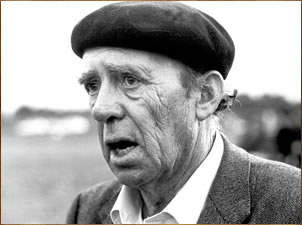
Heinrich Böll (21 december 1917 – 16 juli 1985)
Lees verder “Heinrich Böll, Ted van Lieshout, Rolf Lappert, Thomas Hürlimann, Ivan Blatný, Garmt Stuiveling” →



